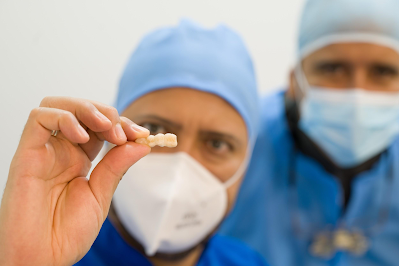What to Consider When Choosing a Tooth Implant or Root Canal

Do you think about tooth implant surgery, or are you just dreading the thought of going through another root canal? If you’re curious about this question, there are several factors you should consider before making your decision. Find out what to consider when choosing between tooth implants and root canals below! Things to Know Before You Decide An implant will replace a single tooth, which can be done in one visit. It’s also suitable for people who are missing several teeth, so they can replace them all at once using All-on-4® dental implants. On the other hand, root canals; you get injections, have a small hole drilled into your tooth, and fill it with dental fillings. Over time, you need to go back for regular check-ups to ensure nothing goes wrong. What to Consider When Choosing a Tooth Implant or Root Canal While both are designed to prevent tooth loss and improve your quality of life, both procedures also have drawbacks. Here are four things to consider when selecting either a







